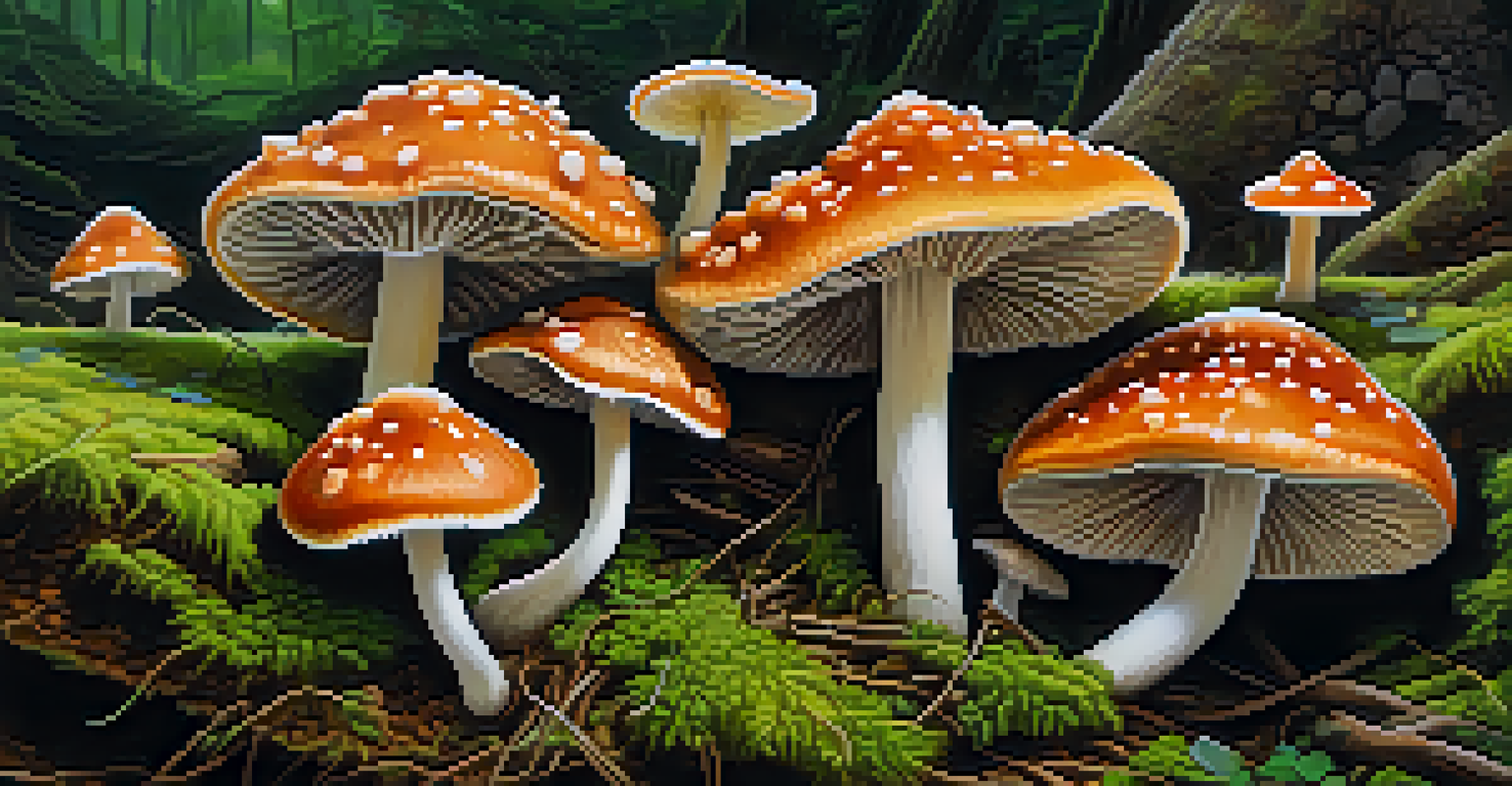Psychedelics and Their Role in Treating Chronic Pain Conditions

Understanding Chronic Pain: A Growing Concern
Chronic pain affects millions of people worldwide, often leading to a cycle of discomfort and frustration. Unlike acute pain, which serves as a warning sign, chronic pain can persist for months or even years, making daily life challenging. Conditions like fibromyalgia, arthritis, and neuropathy are just a few examples that can leave individuals searching for effective relief.
The mind is everything. What you think, you become.
Traditional treatments often include over-the-counter medications, physical therapy, and sometimes more invasive options like surgery. However, these solutions aren't always effective, and many patients experience side effects or develop dependency on painkillers. This has led researchers to explore alternative therapies, including psychedelics, which have shown promise in clinical studies.
Understanding the complexities of chronic pain is crucial as it paves the way for innovative treatments. By addressing the underlying causes and the psychological aspects of pain, we can open doors to new possibilities for relief that go beyond conventional methods.
What Are Psychedelics? A Brief Overview
Psychedelics are substances that alter perception, mood, and cognitive processes, often leading to profound changes in consciousness. Common examples include psilocybin (found in magic mushrooms), LSD, and ayahuasca. While these substances have historically been associated with recreational use, recent research is uncovering their potential therapeutic benefits.

These compounds work primarily on serotonin receptors in the brain, which can influence mood and perception. This interaction can lead to altered states of consciousness that may help patients gain new perspectives on their pain and its emotional impact. The emerging field of psychedelic therapy is gaining traction as more studies document positive outcomes.
Chronic Pain Affects Many Lives
Chronic pain is a widespread issue that persists for months or years, complicating daily life for millions.
Understanding psychedelics isn't just about their effects; it's about recognizing their potential to reshape our approach to mental health and pain management. As we delve deeper into their properties, we find that they might hold the key to unlocking new avenues for chronic pain relief.
The Science Behind Psychedelics and Pain Relief
Research has shown that psychedelics can significantly alter the way the brain processes pain. In studies involving psilocybin, participants reported decreased pain perception and increased emotional well-being. This suggests that psychedelics may help patients reconnect with their bodies in a more positive manner, reducing the psychological burden of chronic pain.
Pain is inevitable. Suffering is optional.
Additionally, psychedelics can induce a state of neuroplasticity, allowing the brain to reorganize and adapt to new information. This is particularly beneficial for individuals trapped in negative thought patterns associated with their pain. By fostering a more adaptable mindset, psychedelics could help patients develop healthier coping mechanisms.
The science is still in its infancy, but the results are promising. As researchers continue to explore the connection between psychedelics and pain relief, we may witness a paradigm shift in how chronic pain is treated in the future.
Clinical Trials: Promising Results and Future Directions
Several clinical trials are currently investigating the use of psychedelics for treating chronic pain, and the early results are encouraging. For instance, studies on psilocybin have shown that patients with chronic pain conditions experienced significant reductions in pain levels and improvements in overall quality of life. These findings are sparking interest among healthcare providers and patients alike.
One notable trial involved participants with fibromyalgia, where the administration of psilocybin led to reduced pain scores and heightened emotional resilience. Such outcomes suggest that psychedelics could provide a unique approach to pain management, addressing both the physical and psychological aspects of chronic pain.
Psychedelics Show Pain Relief Promise
Research indicates that psychedelics like psilocybin can alter pain perception and improve emotional well-being.
As these trials progress, they will provide invaluable data that could shape future treatment protocols. The hope is that psychedelics can be integrated into comprehensive pain management plans, offering patients a holistic approach that goes beyond mere symptom relief.
Psychedelics and Mental Health: A Dual Benefit
Chronic pain often coexists with mental health conditions such as anxiety and depression. Psychedelics have been shown to improve mental health, which can, in turn, alleviate the experience of pain. By addressing both aspects simultaneously, this treatment approach offers a dual benefit that traditional pain management strategies may overlook.
For many individuals, the emotional weight of living with chronic pain can be just as debilitating as the physical pain itself. Psychedelics can facilitate profound emotional breakthroughs, helping individuals process their pain and trauma. This shift in perspective can lead to a decreased focus on pain, allowing for a more balanced emotional state.
Harnessing the power of psychedelics to enhance mental well-being alongside pain relief could revolutionize the way we approach chronic pain management. By embracing this holistic perspective, patients may find themselves on a path to improved overall health and happiness.
Challenges and Considerations in Psychedelic Therapy
Despite the promising results, there are challenges and considerations when it comes to integrating psychedelics into chronic pain treatment. Legal restrictions and societal stigma surrounding these substances can hinder research and access for patients. As the field evolves, it's crucial to advocate for policy changes that will support responsible research and therapeutic use.
Additionally, the therapeutic setting in which psychedelics are administered is vital. Controlled environments with trained professionals can provide a safe space for patients, ensuring they receive the support needed during their experiences. This is essential, as the effects of psychedelics can vary widely among individuals.
Integrating Psychedelics in Treatment
The future of chronic pain management may involve psychedelics, offering a holistic approach that combines physical and mental health benefits.
As we move forward, it's important to address these challenges head-on. By fostering a more open dialogue about psychedelics and their potential, we can create a future where these treatments become a viable option for those suffering from chronic pain.
The Future of Chronic Pain Management with Psychedelics
The future of chronic pain management may very well include psychedelics as a key component. As research continues to unfold, we are likely to see a shift in how the medical community approaches pain treatment, moving towards more holistic and integrative methods. This could lead to a broader acceptance of psychedelics as a legitimate therapy for chronic pain.
Moreover, the potential for personalized treatment plans that incorporate psychedelics could revolutionize patient care. By tailoring therapies to individual needs, healthcare providers can create more effective pain management strategies that consider both physical and psychological factors.

Ultimately, the journey towards integrating psychedelics into chronic pain treatment is just beginning. With continued research, advocacy, and education, we can hope for a future where those suffering from chronic pain have access to innovative and life-changing therapies.